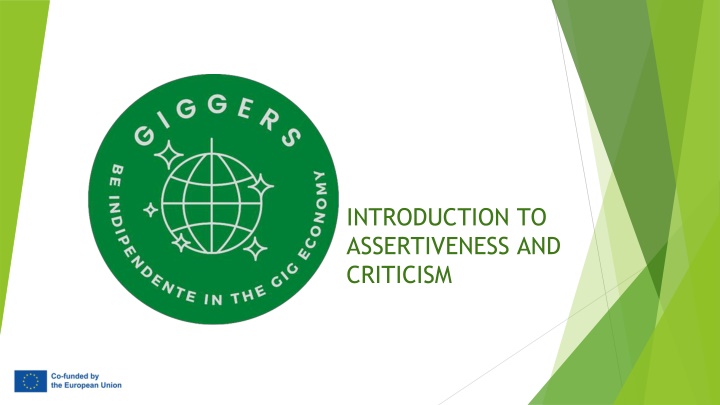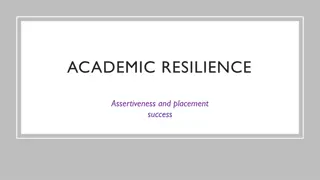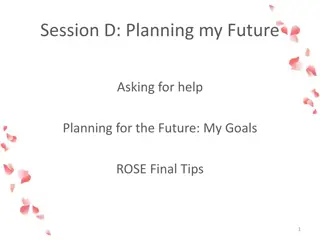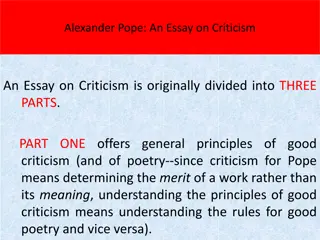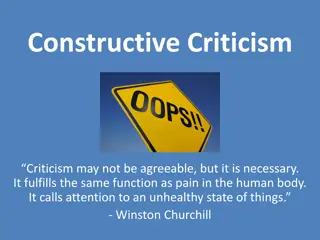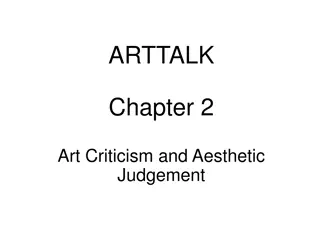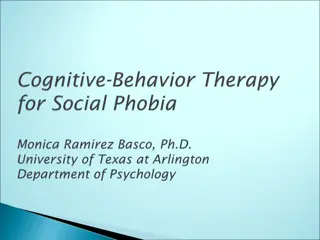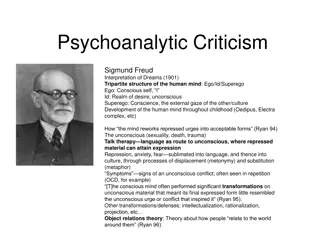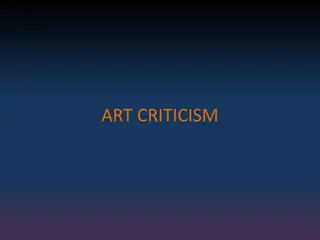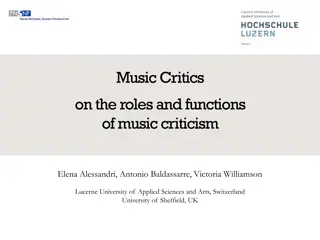INTRODUCTION TO ASSERTIVENESS AND CRITICISM
Assertiveness is key in healthy communication by setting boundaries, promoting mutual respect, and enhancing self-esteem. Constructive criticism can foster personal growth but negative feedback may strain relationships. Understanding these dynamics is crucial for successful interactions.
Download Presentation

Please find below an Image/Link to download the presentation.
The content on the website is provided AS IS for your information and personal use only. It may not be sold, licensed, or shared on other websites without obtaining consent from the author.If you encounter any issues during the download, it is possible that the publisher has removed the file from their server.
You are allowed to download the files provided on this website for personal or commercial use, subject to the condition that they are used lawfully. All files are the property of their respective owners.
The content on the website is provided AS IS for your information and personal use only. It may not be sold, licensed, or shared on other websites without obtaining consent from the author.
E N D
Presentation Transcript
INTRODUCTION TO ASSERTIVENESS AND CRITICISM
Definition of assertiveness and its role in healthy communication Assertiveness is a behavioural characteristic exhibited by individuals who confidently express their thoughts, feelings, and needs in a respectful manner while considering the rights and emotions of others. It involves communicating and advocating for oneself effectively without being passive or aggressive.
In healthy communication, assertiveness plays a vital role in establishing and maintaining boundaries, promoting honest and genuine expression of ideas, promoting mutual respect and understanding, and encouraging healthy conflict resolution. It allows individuals to express their desires, opinions, and concerns without fear of judgment, and fosters open communication channels in personal and professional relationships. By being assertive, people can build self-confidence, enhance self-esteem, and assert their rights while considering the needs and boundaries of others, leading to healthier and more fulfilling interactions.
Understanding the impact of criticism on personal and professional relationships Understanding the impact of criticism on personal and professional relationships involves recognizing the potential effects it can have on individuals and their interactions with others. Criticism, when delivered constructively, can promote personal growth and professional development. However, if not delivered appropriately or received with understanding, it can strain relationships and create negative experiences.
In personal relationships, criticism can deeply affect individuals as it directly addresses their personal qualities, behaviors, or choices. If criticism is expressed with empathy, understanding, and respect, it can pave the way for open communication and growth within the relationship. Constructive criticism in personal relationships can help identify areas of improvement and facilitate personal development. On the other hand, harsh, unfair, or constant criticism can lead to hurt feelings, loss of trust, and conflict. It may impact self-esteem and emotional well-being, potentially damaging the relationship in the long term.
Similarly, in professional relationships, criticism can significantly impact individuals and their work environment. Constructive criticism at the workplace can enhance productivity, encourage professional growth, and improve performance. Well-intentioned feedback can help individuals identify areas for improvement, acquire new skills, and reach their full potential. When delivered professionally, criticism can foster a culture of learning and development within teams or organizations.
However, if criticism is not delivered or received appropriately, it can lead to tension, defensiveness, and strained professional relationships. Harsh or constant criticism without guidance or support can negatively impact motivation and job satisfaction. It may create a hostile work environment, hinder collaboration, and impede progress. Additionally, in situations where criticism is not constructive or based on personal bias, it can damage professional credibility, cause conflict, or even lead to a breakdown in professional relationships.
Understanding the impact of criticism on personal and professional relationships involves recognizing the importance of empathy, respect, and clear communication. It is crucial to provide constructive criticism with sincerity and tact, focusing on specific behaviors or actions rather than attacking personal qualities. Equally important is the ability to receive criticism with an open mind, seeking to understand the intentions behind it and using it as an opportunity for personal and professional growth. By fostering a supportive and constructive environment, the impact of criticism can be transformed into positive change and stronger relationships.
"The European Commission's support for the production of this publication does not constitute an endorsement of the contents, which reflect the views only of the authors, and the Commission cannot be held responsible for any use which may be made of the information contained thereinProject Number: 2022-1-DE-KA220-ADU-000086609
